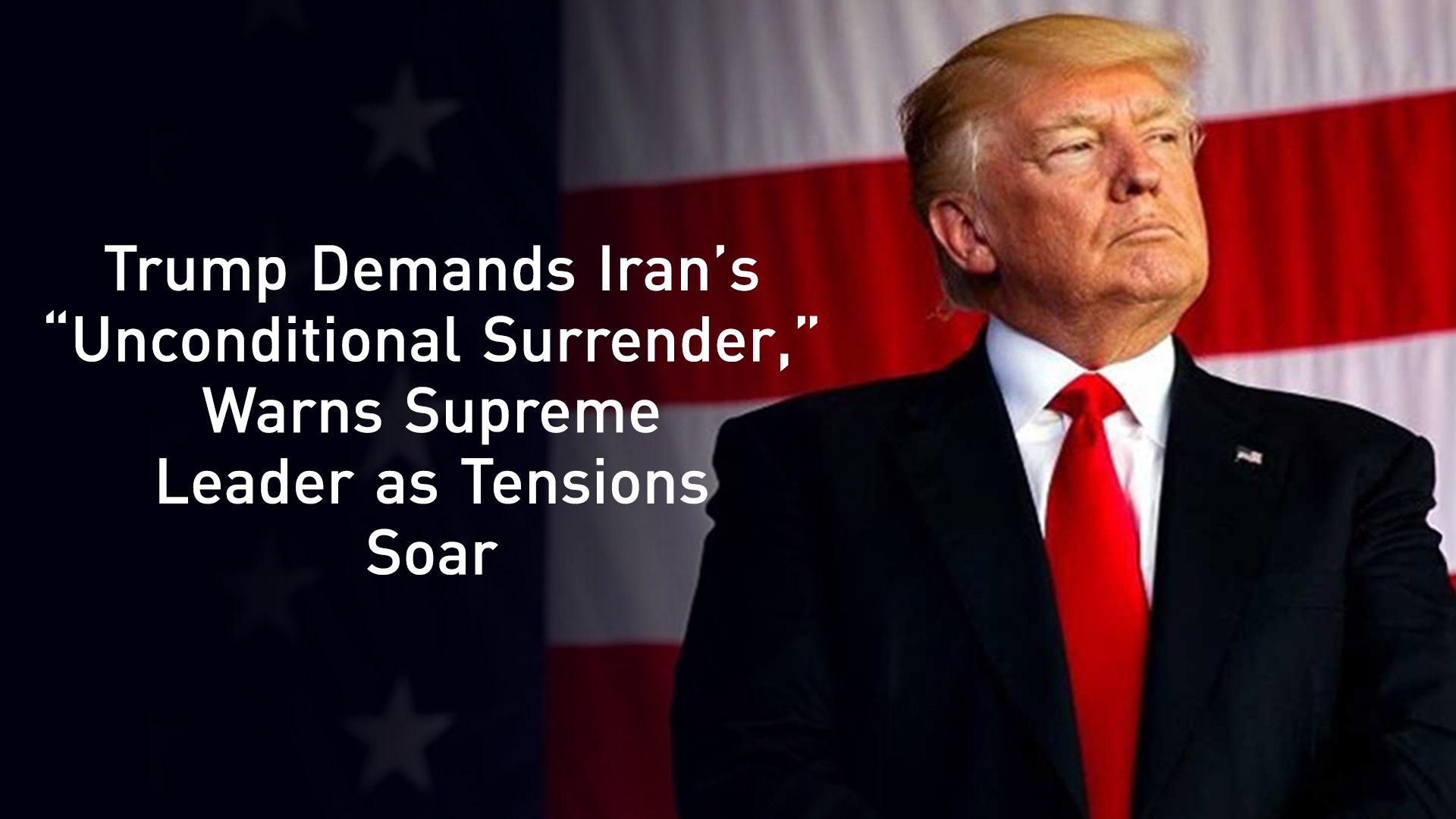Trump Demands Iran’s “Unconditional Surrender,” Warns Supreme Leader as Tensions Soar
Iran's Supreme Leader, Ayatollah Ali Khamenei, responded on X, saying: “We must give a strong response to the terrorist Zionist regime. We will show the Zionists no mercy.”

ERBIL (Kurdistan24) — U.S. President Donald Trump issued a sharp warning to Iran’s leadership on Tuesday, demanding “unconditional surrender” and personally addressing the country’s Supreme Leader, Ayatollah Ali Khamenei, in a string of forceful posts on his Truth Social platform. The comments came just hours before Trump convened a high-level national security meeting at the White House amid escalating hostilities between Iran and Israel.
“We know exactly where the so-called ‘Supreme Leader’ is hiding. He is an easy target, but is safe there — We are not going to take him out (kill!), at least not for now,” Trump wrote. “But we don’t want missiles shot at civilians or American soldiers. Our patience is wearing thin. Thank you for your attention to this matter!”
The statement was followed shortly after by a second, even more forceful post: “UNCONDITIONAL SURRENDER!”
Trump’s remarks marked one of the most explicit personal threats against Khamenei by a sitting U.S. president and came amid fears of wider regional war. The U.S. president has repeatedly stated that while he prefers to avoid direct involvement in Middle East conflicts, Washington will not tolerate attacks on its forces or allies. He has also signaled a readiness for a more aggressive U.S. response if Iranian provocations persist.
Iran Responds with Escalation
Iran's Supreme Leader Ayatollah Ali Khamenei responded on X, saying: “We must give a strong response to the terrorist Zionist regime. We will show the Zionists no mercy.” His post was quickly followed by a significant Iranian missile assault on Israel, which Tehran described as involving “supersonic rockets.”
We must give a strong response to the terrorist Zionist regime.
— Khamenei.ir (@khamenei_ir) June 17, 2025
We will show the Zionists no mercy.
The barrage targeted several cities in central and southern Israel, triggering air raid sirens and sending residents scrambling for shelter. While Israeli officials confirmed interceptions of some missiles, others struck residential areas, causing widespread damage and casualties.
🚩: Widespread Destruction in Israeli Civilian Areas After Iranian Ballistic Missile Strikes!
— Kurdistan 24 English (@K24English) June 18, 2025
📹: Dramatic footage shows severe damage to residential neighborhoods in Israeli cities following a barrage of Iranian ballistic missiles. Homes have been reduced to rubble, vehicles… pic.twitter.com/2J1rW7ap2k
The war between Israel and Iran erupted days ago after a surprise Israeli airstrike targeted Iranian military and nuclear infrastructure. Iran responded with hundreds of drones and missiles, sparking an escalating exchange that has since drawn in regional and international attention.
Trump, who returned early from the G7 summit in Canada, has shown increasing frustration with the situation. His administration has so far limited U.S. involvement to logistical and intelligence support for Israel. However, Washington has deployed additional fighter jets and naval assets to the region, heightening concerns that a broader confrontation may be imminent.
Diplomatic efforts led by countries such as Egypt and France have failed to slow the escalation. Meanwhile, the United Nations and several global powers have urged restraint, warning that continued hostilities could spiral into a full-scale regional war.
Whether Trump’s warning signals a final attempt at deterrence or a prelude to U.S. military action remains unclear. What is certain is that the rhetoric from both Washington and Tehran has reached an alarming pitch.